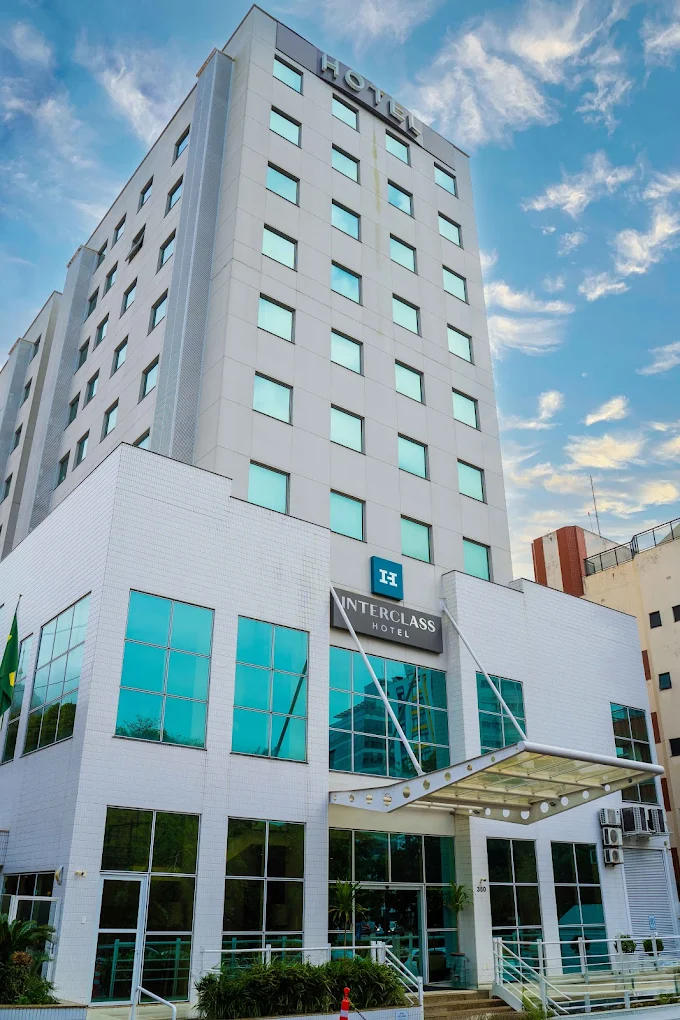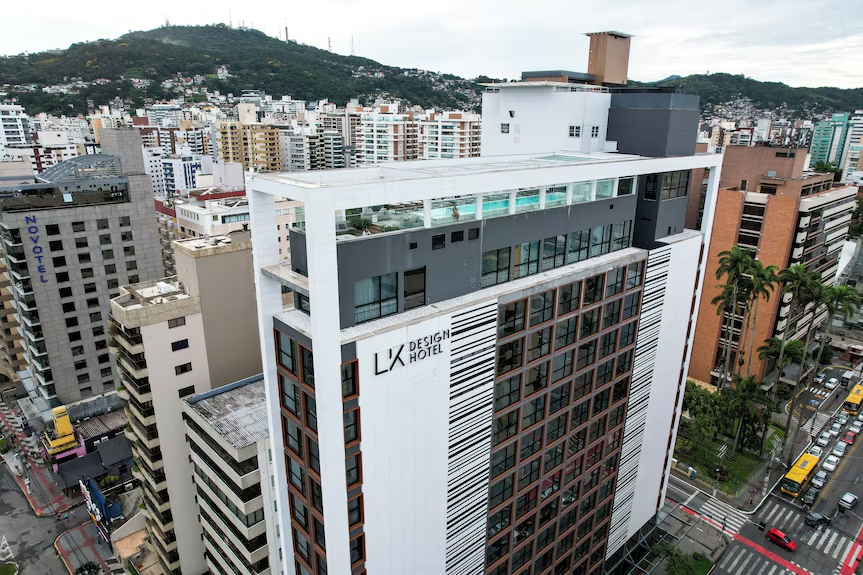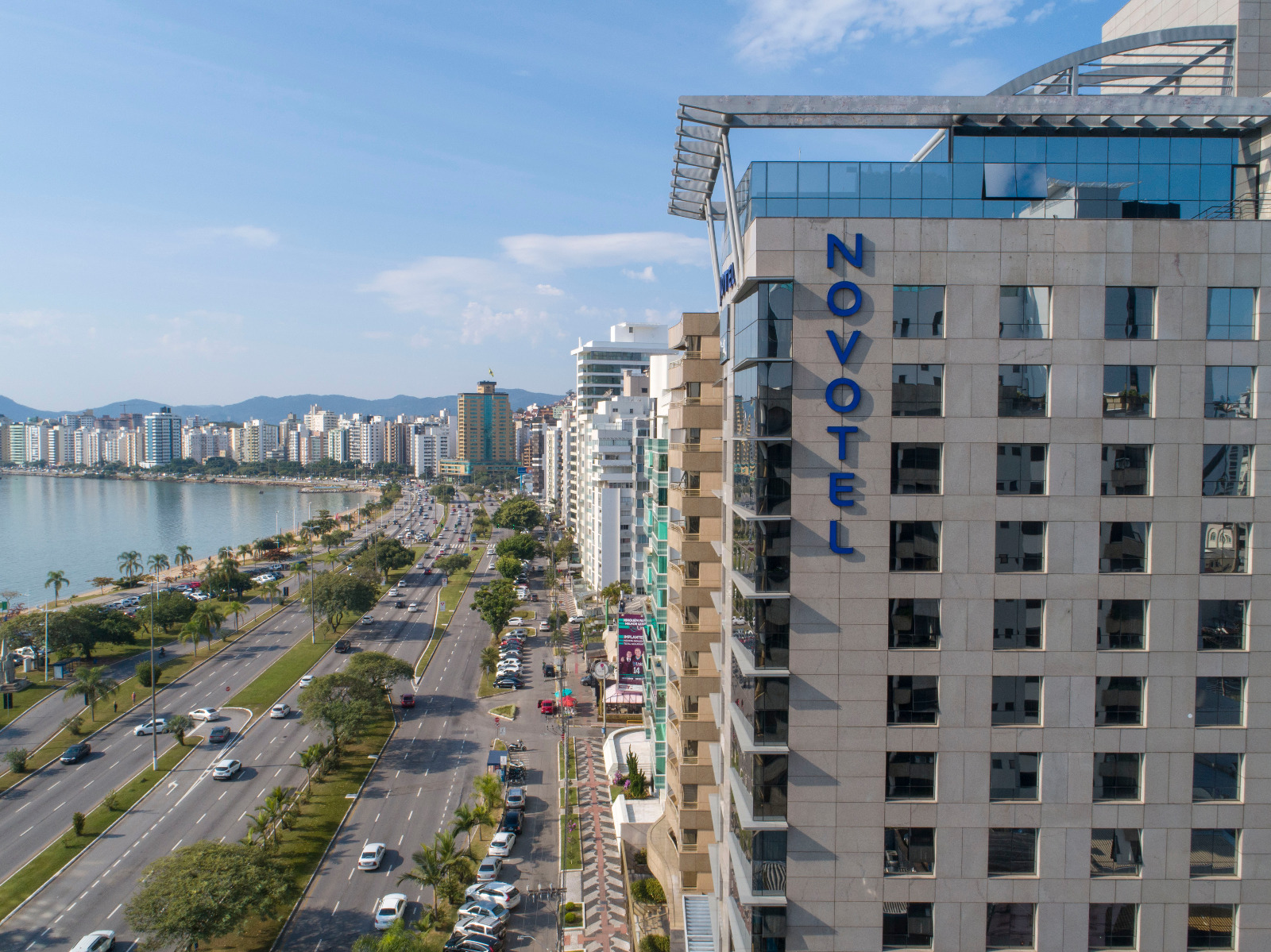17th Latin American Theoretical Informatics Symposium
April 13-17 2026, Florianópolis, Brazil.
(there will be minicourses/tutorials starting April 12th)

Registration opened and tentative program!
Registration system is open. Some dates were altered. A tentative program is available.
About
LATIN (Latin American Theoretical Informatics) was born in 1992, when a group of Latin American researchers, under the leadership of Imre Simon (São Paulo, Brazil), launched the first of a series of symposia in theoretical computer science, to be held triennially in Latin America. Since 1998 it has been held biennially: Valparaiso, Chile (1995); Campinas, Brazil (1998); Punta del Este, Uruguay (2000); Cancún, Mexico (2002); Buenos Aires, Argentina (2004); Valdivia, Chile (2006); Búzios, Brazil (2008); Oaxaca, Mexico (2010); Arequipa, Peru (2012); Montevideo, Uruguay (2014); Ensenada, Mexico (2016); Buenos Aires, Argentina (2018); São Paulo, Brazil (2020); Guanajuato, Mexico (2022); Puerto Varas, Chile (2024).
We are excited to have LATIN2026 in Florianópolis, a paradise in the south of Brazil!
For further information on LATIN, please visit the LATIN Symposium Website.
Scope and topics
LATIN 2026 is devoted to different areas in theoretical computer science including, but not limited, to: algorithmic game theory, algorithms (approximation, online, parametrized, randomized, etc.), analytic combinatorics and analysis of algorithms, automata theory and formal languages, coding theory and data compression, combinatorial and graph algorithms, combinatorial optimization, combinatorics and graph theory, computational algebra and computational number theory, complexity theory, computational biology, computational geometry, cryptology, data structures and information retrieval, parallel and distributed computing, pattern matching, quantum computing, theoretical foundations of data science and machine learning, unconventional models of computation.
News!
February 27, 2026
Registration is now open. The early bird and financial aid request deadlines have been updated. A tentative program is also available.
February 23, 2026
A final template for posters is now available.
February 12, 2026
A full list of accepted papers is now available.
February 9, 2026
Request for financial aid is possible for students and postdocs. See Registration.
February 2, 2026
Prices for registration and some hotels with special discounts are available.
January 28, 2026
Deadlines for posters were updated.
January 21, 2026
Information about posters were updated.
January 12, 2026
New speaker was confirmed and camera-ready date was defined.
November 18, 2025
Information about posters were updated.
November 3, 2025
Some invited were minicourses confirmed.
October 13, 2025
Some invited speakers confirmed and more on the special issue.
October 3, 2025
Deadlines were updated and venue was announced.
July 27, 2025
First call for papers was published.
June 23, 2025
Website was created.
Submissions
Important Dates for Papers
Attention: all deadlines are at 11:59pm AoE (Anywhere on Earth) time zone.
October 6, 2025
October 13, 2025
Short abstract submission
October 13, 2025
October 20, 2025
Paper submission
January 9, 2026
Author notification
February 16, 2026
Camera-ready final version
April 13-17, 2026
LATIN 2026 Conference
(with mini-courses on the 12th)
Paper Submission
Submissions are limited to fifteen (15) single-column letter-size pages in Springer LNCS format; see the LNCS author guidelines.
This page limit includes figures and references, but it does not include an optional appendix. Proofs omitted due to space constraints must be placed in the appendix, which will be read by the program committee members at their discretion. In particular, appendices of accepted papers are not going to be published in the proceedings. The main part of the submission should therefore contain a clear technical presentation of the merits of the paper, including a discussion of the paper's importance within the context of prior work and a description of the key technical and conceptual ideas used to achieve its main claims. The conference employs a lightweight double-blind reviewing process. Submissions should not reveal the identity of the authors in any way. In particular, authors' names, affiliations, and email addresses should not appear at the beginning or in the body of the submission. Authors should ensure that any references to their own related work is in the third person (e.g., not "We build on our previous work..." but rather "We build on the work of..."). Nothing should be done in the name of anonymity that weakens the submission or makes the job of reviewing the paper more difficult. In particular, references should not be omitted or anonymized.
Papers must be submitted electronically via the EasyChair submission system.
The submissions will be open one month before the abstract submission due date. Submit your abstract via EasyChair, before the abstract submission deadline. For full paper submission the deadline is one week later than that of the abstract submission.
Simultaneous submission of papers to any other conference with published proceedings, as well as the submission of previously published papers, is not allowed. Papers must be written in English. For each accepted paper at least one author must register and attend the symposium (in person) to present it. Moreover, an author cannot register for multiple papers. That is, each accepted paper must have its own registrant.
Proceedings
Accepted papers will appear in the proceedings of LATIN, which will be published in Springer Lecture Notes in Computer Science. Accepted papers need to be presented in-person in order to appear in the proceedings of LATIN. There must be a full registration associated with every accepted paper (even if the speaker qualifies for a discounted registration).
Special Issue
A special issue dedicated to selected papers of LATIN 2026 will be published in the journal Theoretical Computer Science.
Awards
Imre Simon Test of Time Award
As of 2012, the Imre Simon Test-of-Time Award is given to
the LATIN paper deemed most influential among all those
published at least ten years prior to the current edition of
the conference.
Papers published in the LATIN proceedings up to and including
2016 are eligible for the 2026 award.
For more information on the nomination process see the permanent website on the award.
Best Paper Award
Papers presented at the conference will be considered for the LATIN 2026 Alejandro López-Ortiz Best Paper Award.
Important Dates for Posters
Attention: all deadlines are at 11:59pm AoE (Anywhere on Earth) time zone.
January 16, 2026
January 31, 2026
February 8, 2026
Poster abstract submission
January 30, 2026
February 16, 2026
February 18, 2026
Poster author notification
February 27, 2026
March 7, 2026
Final poster version
April 13-17, 2026
LATIN 2026 Conference
(with mini-courses on the 12th)
Poster Submission
LATIN 2026 will have poster sessions to facilitate and promote attendance. We especially encourage students and young researchers to submit their preliminary findings and ongoing work covering all the subjects of LATIN.
Authors of posters must submit a two-page abstract prepared using the Springer LNCS format. Detailed formatting instructions are available in the LNCS author guidelines.
All submissions will undergo peer review. At least one author of each accepted abstract is required to attend LATIN 2026 and present the work in person during the poster session. A template for the final poster can be downloaded here.
Abstracts of posters must be submitted electronically via the EasyChair submission system.
Accepted papers
- Majority Boolean networks classifying density: structural characterization and complexity. Marius Rolland and Kévin Perrot
- Graph Exploration with Edge Weight Estimates. Matthias Gehnen, Ralf Klasing, and Emile Naquin
- Computing Dominating Sets in Disk Graphs with Centers in Convex Position. Anastasiia Tkachenko and Haitao Wang
- A (4/3 + ε)-Approximation for Preemptive Scheduling with Batch Setup Times. Max A. Deppert, David Fischer and Klaus Jansen
- Launching Identity Testing into (Bounded) Space. Pranav Bisht, Nikhil Gupta, Prajakta Nimbhorkar and Ilya Volkovich
- On the near-tightness of chi ≤ 2r: a general sigma-ary construction and a binary case via LFSRs. Vinicius Tikara Venturi Date and Leandro Miranda Zatesko
- Fair Correlation Clustering Meets Graph Parameters. Johannes Blaha, Robert Ganian, Katharina Gillig, Jonathan Højlev and Simon Wietheger
- Online computation of normalized substring complexity. Gregory Kucherov and Yakov Nekrich
- Spirals and Beyond: Competitive Plane Search with Multi-Speed Agents. Konstantinos Georgiou, Caleb Jones and Matthew Madej
- Constructing alphabet reduction pairs of arrays. Sophie Toulouse
- Complexity of the Possible and the Necessary President Problem in Schulze Voting. Jörg Rothe and Jana Woitaschik
- Generating 2-Gray codes for grand Motzkin paths and grand Dyck paths with air pockets in constant amortized time. Lei Dong, Bowie Liu, Dennis Wong, Lin Chen, Chan-Tong Lam and Sio-Kei Im
- Quantum Circuit for Quantum Fourier Transform for Arbitrary Qubit Connectivity Graphs. Kamil Khadiev, Aliya Khadieva, Vadim Sagitov and Kamil Khasanov
- How many times can two minimum spanning trees cross?. Todor Antic, Morteza Saghafian, Maria Saumell, Felix Schröder, Josef Tkadlec and Pavel Valtr
- A 9/5-Approximation Algorithm for the Maximum Edge 2-Coloring Problem on Bipartite Graphs. Alexandru Popa
- Two Complexity Results on Spanning-Tree Congestion Problems. Sunny Atalig, Marek Chrobak, Christoph Durr, Petr Kolman, Huong Luu, Jiri Sgall and Gregory Zhou
- Homogeneous substructures in random ordered uniform matchings. Andrzej Dudek, Jarek Grytczuk, Jakub Przybylo and Andrzej Rucinski
- Local Resilience for Containment of Bounded Degree Spanning Subgraphs. Peter Allen, Julia Böttcher, Yoshiharu Kohayakawa and Mihir Neve
- Multihead Finite-State Compression. Neil Lutz
- Optimized 2-approximation of Treewidth. Mahdi Belbasi, Martin Fürer and Medha Kumar
- Not all semirings are strong. David Madore and Jacques Sakarovitch
- Computational Complexity of Covers and Partial Covers of 2-in-2-out-regular Digraphs. Jiri Fiala, Samuel Gardelle, Jan Kratochvil and Andrzej Proskurowski
- Compressed Set Representations based on Set Difference. Meng He, Travis Gagie and Gonzalo Navarro
- On Numbers of Simplicial Walks and Equivalent Canonizations for Graph Recognition. Marek Cerný
- Coresets for Farthest Point Problems in Hyperbolic Space. Eunku Park and Antoine Vigneron
- How to Sort in a Refrigerator: Simple Entropy-Sensitive Strictly In-Place Sorting Algorithms. Michael T. Goodrich, Ofek Gila and Vinesh Sridhar
- Square root of split graphs: linear algorithms for threshold and split-indifference graphs. Aleffer Rocha, Renato Carmo and André L. P. Guedes
- Computing fixed point free automorphisms of graphs. Emanuel Juliano Morais Silva, Gabriel Coutinho, Vinicius Fernandes dos Santos, Sjanne Zeijlemaker and Aida Abiad
- A lower bound of 4 for online graph exploration. Julia Baligacs
- Hitting all longest paths in H-free graphs and H-graphs. Paloma de Lima, Amir Nikabadi and Pawel Rzazewski
- Dynamic data structures for twin-ordered matrices. Bartlomiej Bosek, Jadwiga Czyzewska, Evangelos Kipouridis, Wojciech Nadara, Michal Pilipczuk, Karol Wegrzycki and Anna Zych-Pawlewicz
- A Markov-Chain Characterization of Finite-State Dimension and a Generalization of Agafonov's Theorem. Laurent Bienvenu, Hugo Gimbert and Subin Pulari
- Combinatorial ranking algorithms for the general linear group. Gustavo Zambonin, Tiago Siqueira, Larissa Gremelmaier Rosa, Rodrigo Alois Muhr Stefanes, Ricardo Custódio and Daniel Panario
- Towards Succinct Beer Proper Interval Graphs. Meng He and Kaiyu Wu
- Inapproximability of H-Coloring Problems. Kamyar Khodamoradi and Arash Rafiey
- Splittable Spanning Trees and Balanced Forests in Random Graphs. David Gillman, Jacob Platnick and Dana Randall
- On the Computational Complexity of Asymmetric Median Consensus Trees. Daniel Harvey, Jesper Jansson and Yutong Yang
- Improvement of the Size of Control Alphabet for Controlled Generation of Unary Strings of Specified Length. Daihei Ise and Satoshi Kobayashi
- The Parameterized Complexity of Geometric 1-Planarity. Alexander Firbas
- Algorithms and Complexity for Edge Set Switching in Graphs. Christoph Kern, Alexander Firbas and Manuel Sorge
- Lazy List Merge Heaps. Gerth Stølting Brodal, John Iacono, Casper Rysgaard and Sebastian Wild
- Limits of Kernelization and Parametrization for Phylogenetic Diversity with Dependencies. Niels Holtgrefe, Jannik Schestag and Norbert Zeh
Program Overview
Invited Speakers
The following are the confirmed invited speakers. More to be announced!
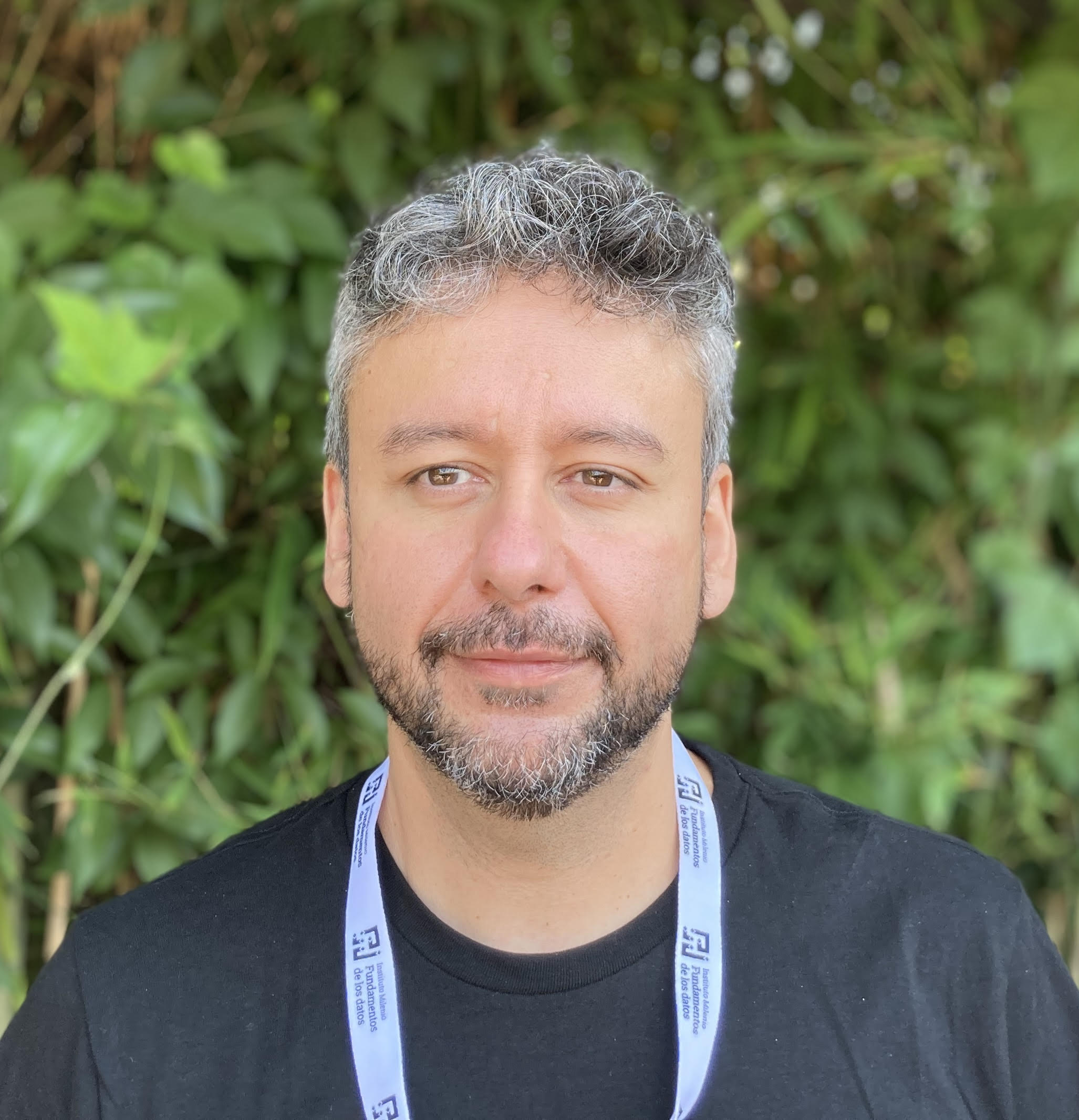
Marcelo Arenas
Pontificia Universidad Católica de Chile

Martin Farach-Colton
New York University
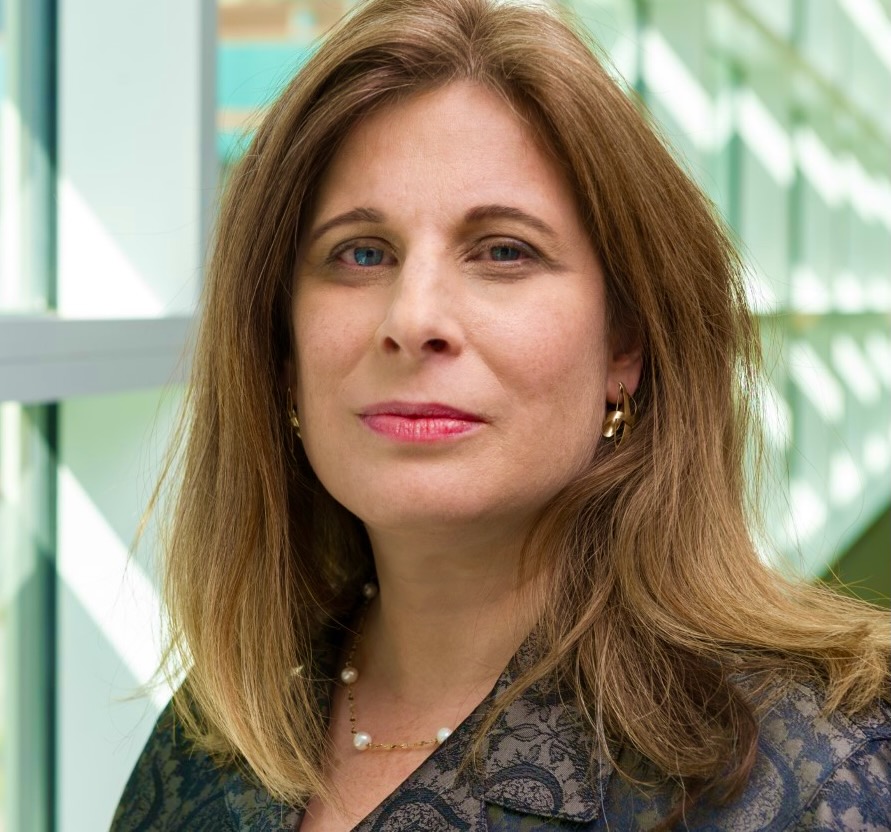
Dana Randall
Georgia Institute of Technology
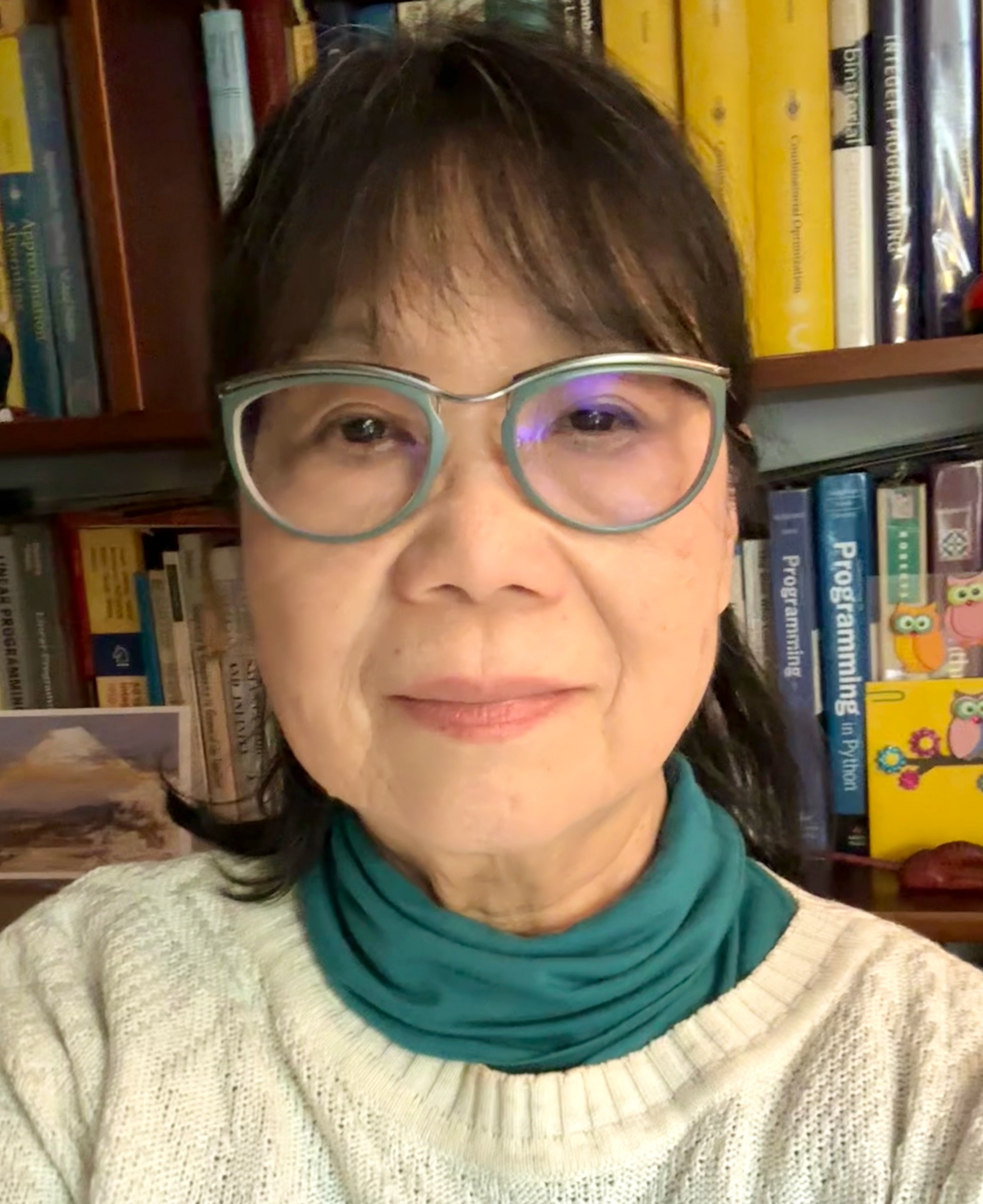
Yoshiko Wakabayashi
Universidade de São Paulo
Special Minicourses
The following invited researchers will deliver minicourses during LATIN 2026. More information to come!

Marcos Kiwi
Universidad de Chile
Abstract: A central challenge in network science is the development of generative models that accurately reflect the topology of real-world systems -- such as the Internet and social networks -- while remaining amenable to rigorous mathematical treatment. Traditional models often suffer from a dichotomy: they either replicate empirical features (e.g., power-law degree distributions, high clustering, and small diameter) at the expense of analytical tractability, or they offer mathematical simplicity while failing to capture essential structural nuances. In this mini-course, we explore Random Hyperbolic Graphs (RHGs), a framework introduced in 2010 that bridges this gap by embedding network nodes into underlying hyperbolic geometry. We will formally define the RHG model and establish its fundamental structural properties. Furthermore, this course serves as a pedagogical introduction to probabilistic techniques used in the study of random (hyper-)geometric graphs. Finally, time permitting, we will discuss the implications of the underlying geometry on navigability, examining how greedy routing using local information performs within these hyperbolic spaces.

Jelani Nelson
University of California, Berkeley
Program
The schedule presented is preliminary and subject to change. A more detailed version will be released in the coming days, and adjustments to times, activities, or speakers may occur.
Sunday
- Registration for minicourse participants
- Minicourse by Marcos Kiwi (Random Hyperbolic Graphs: Geometry, Structural Properties, and Probabilistic Analysis)
- Informal gathering in the evening
Monday
- Registration
- Opening
- Plenary lecture
- 3 Technical sessions
- Reception in the evening (around 07:30 PM)
Tuesday
- Registration
- Plenary lecture
- 2 Technical sessions
- ALO Award session
- IS Award and lecture session
- Business meeting
Wednesday
- Registration
- Plenary lecture
- 1 Technical session
- Official photo
- Conference excursion with lunch
Thursday
- Plenary lecture
- Minicourse by Jelani Nelson
- 1 Technical session
- Conference dinner in the evening (around 07:30 PM)
Friday
- Plenary lecture
- 1 Technical session
- Closing
General Information
Registration
There are full and reduced (i.e., discounted) registrations. The reduced registration is reserved only for undergrad students, master students, PhD students and postdocs. Please note, however, that each accepted paper requires one full registration (even if the presenter is a student).
The payments displayed below are in the official currency of Brazil, the Brazilian Real (BRL). They cover attendance to all scientific sessions, plenaries, and minicourses during the conference, coffee breaks, conference pack, conference reception, conference dinner, and conference excursion (which includes one lunch).
Registration will be done via Easychair. Payments can be done via credit card in USD directly via this registration system. Alternatively, a bank transfer can be done directly to the conference bank account in BRL (Banco do Brasil - account number to be published here soon) and the proof of payment must be added when filling the registration form in the Easychair link.
| Date | Full | Reduced (students and postdocs) |
|---|---|---|
| Early bird (until March |
2,150 BRL (approx. 400 USD) | 1,080 BRL (approx. 200 USD) |
| Standard (until March 27th) | 2,700 BRL (approx. 500 USD) | 1,350 BRL (approx. 250 USD) |
| Late (until April 9th) | 3,250 BRL (approx. 600 USD) | 1,630 BRL (approx. 300 USD) |
Financial Aid Available
Students/postdocs not from Florianópolis who are unable to
obtain financial support from their home institutions may
apply for financial assistance.
Financial assistance will be given only for chosen applicants
who complete their event registration and are present at the
event, even if registration occurs after the assistance
request is submitted.
Priority will be given to students, with additional
preference for those based in Latin America.
Due to limited resources, we expect to be able to offer
limited support (4 per diems of 380 BRL) to some
students/postdocs.
The application deadline is February
28th March 4th, 2026, with responses expected by
March 3rd 7th, and registration expected to
be completed by the student/postdoc by the Early Bird
registration deadline.
Venue
The site of LATIN 2026 will be the "Auditório do CCB", at the Campus of the Universidade Federal de Santa Catarina, UFSC.
Local Information
Known as the "Magic Island", Florianópolis is the capital of the state of Santa Catarina and one of Brazil's most charming destinations. The city offers a unique combination of natural beauty - with beaches, hills, and lagoons - and a vibrant urban environment with a high quality of life.
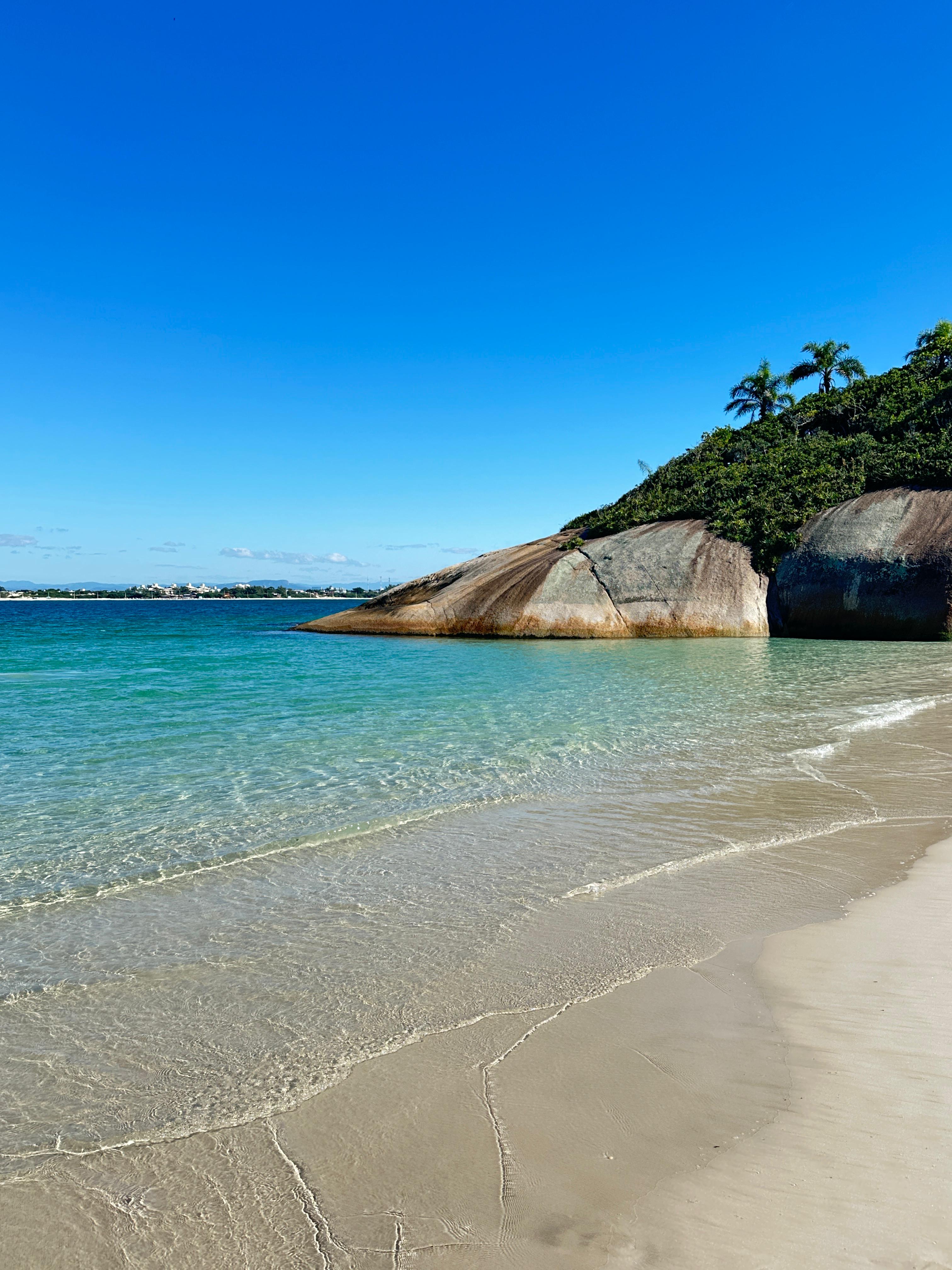
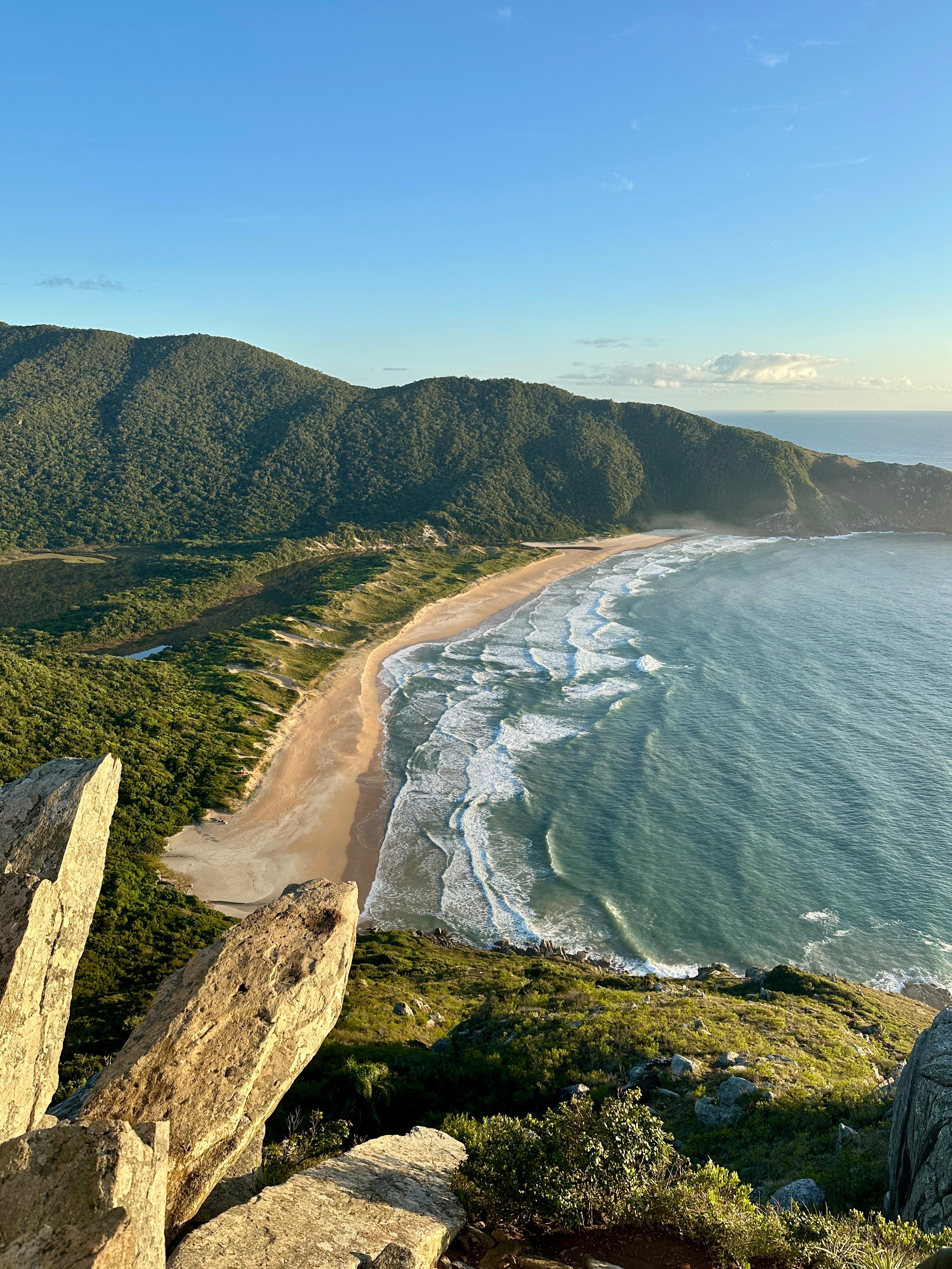
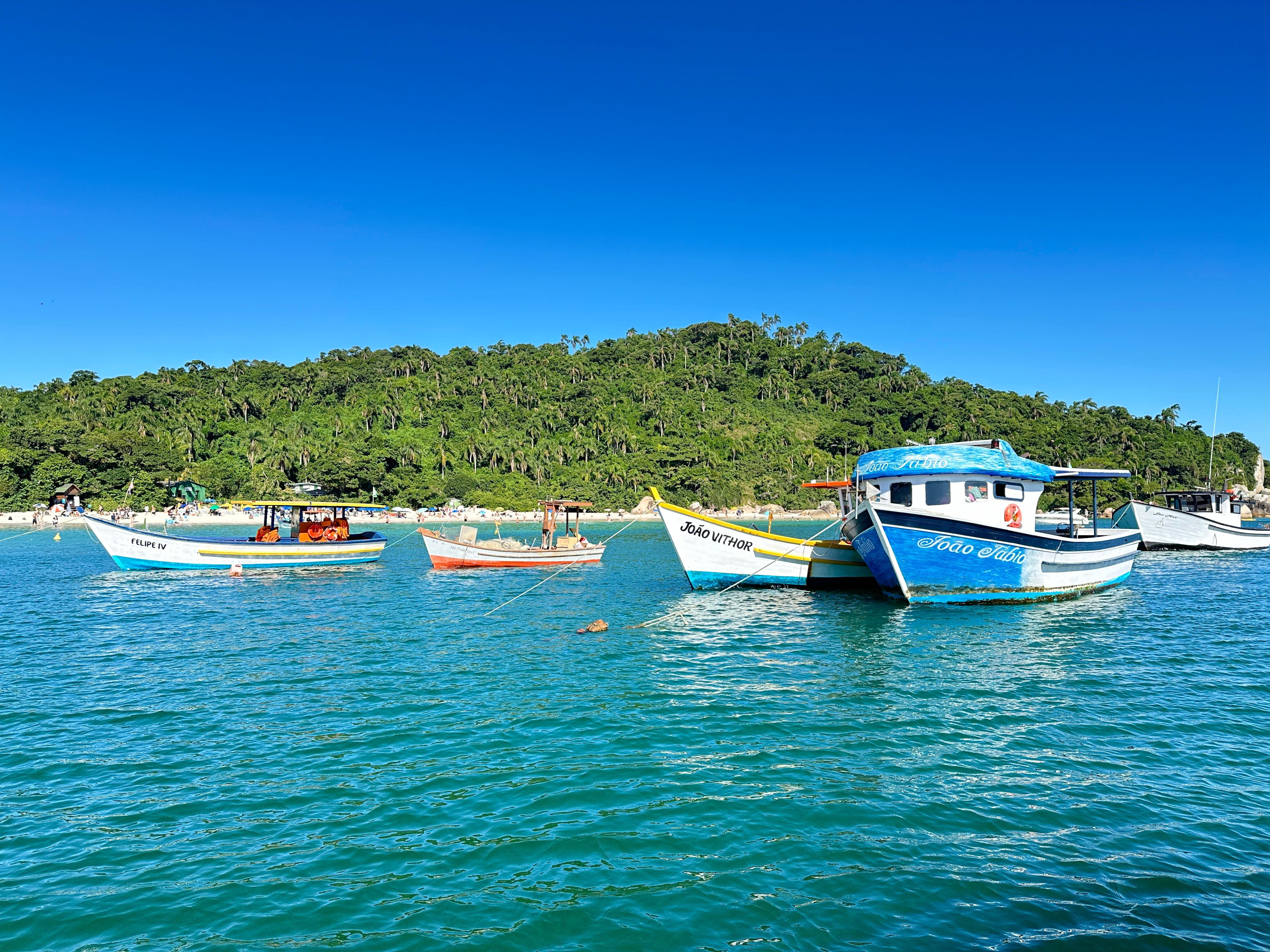
Accomodation
We've secured special discounts with the following selected hotels.
Committees
General LATIN2026 Chair
- Lucia Moura, University of Ottawa, Canada
Program Committee
- Conrado Martínez (co-chair), Universitat Politècnica de Catalunya, Spain
- Lucia Moura (co-chair), University of Ottawa, Canada
- Gabriela Araujo-Pardo, Universidad Nacional Autónoma de México, Mexico
- Gill Barequet, Technion - Israel Institute of Technology, Israel
- Verónica Becher, Universidad de Buenos Aires, Argentina
- Prosenjit Bose, Carleton University, Canada
- Amalia Duch Brown, Universitat Politècnica de Catalunya, Spain
- Eduardo A. Canale, Universidad de la República, Uruguay
- Edgar Chavez, Centro de Investigación Científica y de Educación Superior de Ensenada, Mexico
- Maria Chudnovsky, Princeton University, United States
- David Eppstein, University of California, Irvine, United States
- Leah Epstein, University of Haifa, Israel
- Esteban Feuerstein, Universidad de Buenos Aires, Argentina
- Celina de Figueiredo, Universidade Federal do Rio de Janeiro, Brazil
- Paola Flocchini, University of Ottawa, Canada
- Travis Gagie, Dalhousie University, Canada
- Luisa Gargano, Università degli Studi di Salerno, Italy
- Konstantinos Georgiou, Toronto Metropolitan University, Canada
- Mayank Goswami, City University of New York, United States
- Pinar Heggernes, Universitetet i Bergen, Norway
- Carlos Hoppen, Universidade Federal do Rio Grande do Sul, Brazil
- Thaís Bardini Idalino, Universidade Federal de Santa Catarina, Brazil
- Marcos Kiwi, Universidad de Chile, Chile
- Sudeshna Kolay, Indian Institute of Technology Kharagpur
- Carla Negri Lintzmayer, Universidade Federal do ABC, Brazil
- Zsuzsanna Lipták, Università degli Studi di Verona, Italy
- Sylvain Lombardy, Institut Polytechnique de Bordeaux, France
- Flávio Keidi Miyazawa, Universidade Estadual de Campinas, Brazil
- Amanda Montejano, Universidad Nacional Autónoma de México, Mexico
- Guilherme Oliveira Mota, Universidade de São Paulo, Brazil
- Torsten Mütze, Universität Kassel, Germany
- Gonzalo Navarro, Universidad de Chile, Chile
- Cyril Nicaud, Université Gustave Eiffel, France
- Daniel Panario, Carleton University, Canada
- Pablo Pérez-Lantero, Universidad de Santiago de Chile, Chile
- Solon Pissis, Centrum Wiskunde & Informatica, Netherlands
- Sergio Rajsbaum, Universidad Nacional Autónoma de México
- Rajeev Raman, University of Leicester, England
- Andréa W. Richa, Arizona State University, United States
- Francisco Rodríguez-Henríquez, Technology Innovation Institute, United Arab Emirates
- Martín Safe, Universidad Nacional del Sur, Argentina
- Rafael de Santiago, Universidade Federal de Santa Catarina, Brazil
- Maria Serna, Universitat Politècnica de Catalunya, Spain
- José A. Soto, Universidad de Chile, Chile
- Bettina Speckmann, Technische Universiteit Eindhoven, Netherlands
- Meng-Tsung Tsai, Academia Sinica, Taiwan
- Alfredo Viola, Casa de Investigadores Científicos La Comarca, Uruguay
- Sebastian Wild, Philipps-Universität Marburg, Germany
- Meirav Zehavi, Ben-Gurion University of the Negev, Israel
Organizing Committee
- Ricardo Felipe Custódio, Universidade Federal de Santa Catarina, Brazil
- Álvaro Junio Pereira Franco, Universidade Federal de Santa Catarina, Brazil
- Thaís Bardini Idalino, Universidade Federal de Santa Catarina, Brazil
- Carla Negri Lintzmayer, Universidade Federal do ABC, Brazil
- Guilherme Oliveira Mota, Universidade de São Paulo, Brazil
- Rafael de Santiago, Universidade Federal de Santa Catarina, Brazil
Steering Committee
- Flavia Bonomo, Universidad de Buenos Aires, Argentina
- Armando Castañeda, Universidad Nacional Autónoma de México, Mexico
- Conrado Martínez (chair), Universitat Politècnica de Catalunya, Spain
- Flávio Keidi Miyazawa, Universidade Estadual de Campinas, Brazil
- Jacques Sakarovitch, CNRS and Télécom Paris, France
- José A. Soto, Universidad de Chile, Chile

